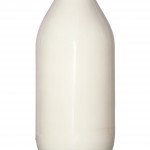Posted on December 16, 2015 by Jenny Cromack
There is a lot of speculation about dairy. Is dairy good or bad for you?
Full fat dairy has long been criticised with claims of increasing the risk of heart disease, obesity and other health related diseases.However there is more and more emerging evidence and research which say that full fat dairy products, in moderation, have numerous health benefits, as well as assisting in fat loss.
Research argues that consuming reduced fat dairy actually isn’t as beneficial as full fat dairy. Reduced fat dairy proves non of the benefits of whole-fat dairy as it increases circulating triglycerides, doesn’t lower calorie intake and often has added sugars. Whole fat dairy provides the fat soluble vitamins A, D and K, has cancer fighting conjugates Lioleic acid and contains positive probiotic bacteria.
Research has also shown a negative association between whole- fat dairy intake and weight increase meaning people who eat more whole fat dairy are in fact leaner.
Let’s look at some dairy products in more detail and find whether dairy is good or bad for you.
Cheese
Hard cheeses can cause excess mucus production and can exacerbate yeast infections, because they are naturally high in mould. Cheese is mainly fat with very little protein, so if you are going to eat it, it should be done so in moderation. The best cheeses for you to have are organic’softer’ cheeses (the softer the better) – cottage cheese, ricotta cheese, goats cheese, feta cheese, sheep’s-milk cheese, and any raw, unpasteurised cheeses you can find.
Goat and sheep cheese are usually better tolerated in people who have allergies or sensitivities to cow’s milk. And unpasteurised cheeses are richer in calcium than the more processed brands this is because the pasteurisation process makes it very difficult for calcium to be absorbed.
Yoghurt
Yogurt is rich in probiotics, which are the “good” bacteria present in our intestinal tracts. Healthy people normally have about four pounds of beneficial bacteria in their intestinal tract, and yogurt helps keep that balance intact. Yogurt is low in lactose and very easy to digest. However to get the most benefit for yoghurt you must buy the plain kind and make sure it has fat in it. Fat-free dairy products register as a carb in the body and raise insulin levels.
If you enjoy dairy then it is best to enjoy the full fat versions of yoghurt and milk and it is best if it is locally pasture raised, organic this will increase the quality of the nutrition profile and ensure it doesn’t contain antibiotics or growth hormone. Of course moderation is key and you will need to consume as much as appropriate for you as an individual.



